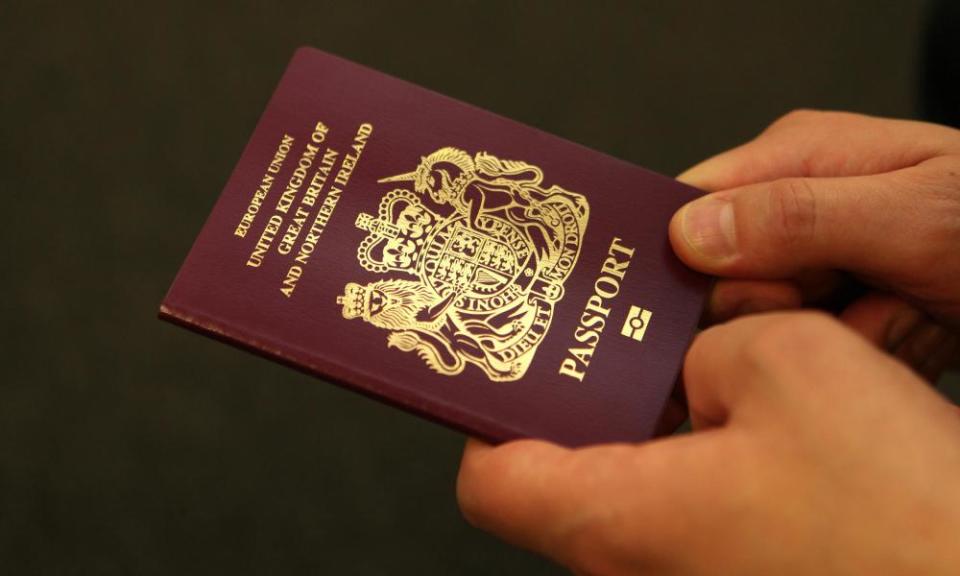Calls for 'X' gender option in UK passports to be raised in Commons

Fresh attempts to force the government to introduce an “X” gender option on passports for non-binary people will be made in parliament this week.
Stonewall, the LGBTQ+ charity, is backing a new private member’s bill demanding ministers recognise gender-neutral passports, which have already been rolled out in Australia, Canada and Germany.
“There are hundreds of thousands of people in the UK who do not identify as exclusively male or female, but the Conservative government still refuses to give them the dignity of recognising their identities,” said Christine Jardine, the Liberal Democrats’ equalities spokeswoman, who will introduce the bill in the Commons on Tuesday, International Non-Binary People’s Day.
“Introducing an ‘X’ gender option on passports is a relatively small change that would make a big difference to so many people’s lives. I find it utterly incomprehensible that this government still refuses to follow the example of so many other countries and make this change,” she added.
The Home Office won the right not to issue gender-neutral passports to UK citizens in March following a legal appeal by the activist Christie Elan-Cane.
However, the court’s three senior judges said at the time that if international trends towards more widespread recognition of “non-binary” identity continued, at a future date this stance could breach human rights.
Bangladesh, Denmark, India, the Netherlands and New Zealand also include non-binary gender options on passports, and 18 US states allow residents to mark their gender as ‘X’ on their driving licence.
The Home Office has previously argued that issuing passports with an X mark could bring additional costs. In the appeal court ruling in March, the judges deemed there was no positive obligation on the state to provide an “X” marker in order to ensure the right to respect for private life. On Sunday night, a Home Office spokesperson said: “We welcome the court of appeal’s judgment.”
Nancy Kelley, the chief executive of Stonewall, said: “It’s vital that non-binary people are able to have their gender recognised on official documents, including passports. Travelling abroad can present many challenges for non-binary people, and trans communities more widely, who can face intrusive questions and difficulties at passport control.”
Few private member’s bills become law but they can create publicity around an issue and pressure the government into taking action.
Upskirting became a criminal offence after Wera Hobhouse, the Lib Dem MP , introduced a private member’s bill in the Commons. It was objected to by the Tory MP Christopher Chope but reintroduced by the Conservatives as government legislation and passed.

